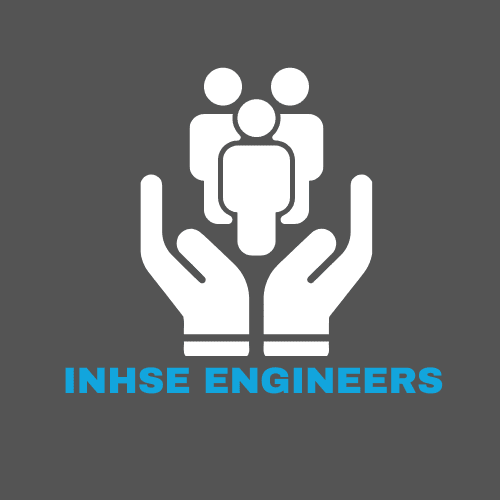
IN HSE ENGINEERS An Environment, Health, and Safety (EHS) integrated services provider is a company or organization that offers comprehensive solutions to address various aspects of environmental, health, and safety management within businesses or industries. These services are designed to help organizations comply with regulations, reduce risks, and create a safe and sustainable working environment.
IN HSE ENGINEERS components of EHS integrated services may include:
- Environmental Services:
- Regulatory compliance assessment and reporting.
- Environmental impact assessments.
- Pollution prevention and control.
- Waste management and recycling programs.
- Health and Safety Services:
- Occupational health and safety assessments.
- Hazard identification and risk assessments.
- Safety training programs for employees.
- Emergency response planning.
- Integrated Management Systems:
- Development and implementation of integrated EHS management systems.
- Auditing and certification support for standards such as ISO 14001 (Environmental Management) and ISO 45001 (Occupational Health and Safety).
- Data Management and Reporting:
- Implementation of EHS software solutions for data tracking and reporting.
- Analysis of key performance indicators (KPIs) related to EHS.
- Compliance Support:
- Monitoring and ensuring compliance with local, national, and international EHS regulations.
- Providing updates on changes in regulations and helping organizations adapt.
- Consulting and Advisory Services:
- Strategic advice on EHS policies and procedures.
- Assistance in developing sustainable and responsible business practices.
- Training and Education:
- Conducting workshops and training sessions for employees and management.
- Keeping stakeholders informed about the latest EHS best practices.
- Incident Investigation and Management:
- Conducting investigations into accidents or incidents.
- Developing strategies to prevent future occurrences.
By offering a holistic approach to environmental, health, and safety concerns, EHS integrated services providers aim to assist businesses in fostering a culture of safety, compliance, and sustainability. This can lead to improved operational efficiency, reduced liabilities, and enhanced corporate responsibility.Services provided by an EHS Manager services provider may include:EHS Program Development:
Designing and implementing comprehensive EHS programs tailored to the specific needs of the organization. Creating policies and procedures to address environmental, health, and safety concerns. Regulatory Compliance:
- Monitoring and ensuring compliance with local, national, and international EHS regulations.
- Providing updates on changes in regulations and helping organizations adapt.
- Risk Assessment and Management:
- Conducting hazard assessments and risk analyses to identify potential workplace risks.
- Developing strategies to mitigate and manage risks effectively.
- Training and Education:
- Developing and delivering training programs for employees and management on EHS best practices, regulations, and safety procedures.
- Incident Investigation and Reporting:
- Investigating workplace incidents or accidents to determine root causes.
- Developing and implementing corrective actions to prevent future occurrences.
- Audits and Inspections:
- Conducting regular audits and inspections to assess the effectiveness of EHS programs and identify areas for improvement.
- Emergency Response Planning:
- Developing and implementing plans for responding to emergencies, including natural disasters, accidents, and other unforeseen events.
- Data Management and Reporting:
- Implementing EHS software solutions for data tracking, reporting, and analysis.
- Generating reports on key performance indicators (KPIs) related to EHS.
EHS Manager services providers help organizations create and maintain a safe and compliant working environment, fostering a culture of responsibility and sustainability. They contribute to the overall well-being of employees, reduce operational risks, and enhance an organization’s reputation in terms of environmental and social responsibility.
An EHS Management Solution is a comprehensive software platform or system designed to help organizations manage their Environment, Health, and Safety (EHS) programs effectively. These solutions typically integrate various functionalities and tools to streamline EHS-related processes, improve compliance, and enhance overall workplace safety.
Key features and components of an EHS management solution may include:
- Incident Management: Tools for reporting, investigating, and tracking workplace incidents, accidents, near misses, and injuries. This may include incident forms, workflow automation, and analytics for trend analysis.
- Risk Assessment and Management: Modules for identifying, assessing, and mitigating risks associated with workplace hazards, processes, and activities. This could involve risk matrices, hazard analysis tools, and risk control measures.
- Compliance Management: Functionality to ensure compliance with relevant EHS regulations, standards, and permits. This may include regulatory tracking, compliance calendars, and audit management features.
- Training and Certification Management: Systems for managing employee training programs, certifications, and competency assessments related to EHS topics. This could include course scheduling, online training modules, and training record tracking.
- Environmental Management: Tools for managing environmental aspects such as air emissions, water quality, waste management, and sustainability initiatives. This may involve environmental data tracking, reporting, and regulatory compliance support.
- Occupational Health Management: Modules for monitoring and managing employee health-related data, such as exposure to hazardous substances, medical surveillance, and health assessments.
- Document Management: Centralized repositories for storing and managing EHS-related documents, policies, procedures, permits, and reports. This could include version control, document approval workflows, and document linking.
- Reporting and Analytics: Dashboards and reporting tools to visualize EHS performance metrics, track key performance indicators (KPIs), and generate regulatory reports. This may involve customizable reporting templates, ad-hoc reporting capabilities, and data visualization features.
- Mobile Capabilities: Mobile applications or responsive web interfaces to facilitate data collection, incident reporting, audits, inspections, and training activities in the field or across multiple locations.
- Integration Capabilities: Ability to integrate with other enterprise systems, such as HRIS (Human Resources Information Systems), ERP (Enterprise Resource Planning), and SCADA (Supervisory Control and Data Acquisition), to streamline data exchange and ensure data integrity.
- EHS management solutions play a crucial role in helping organizations proactively manage risks, improve operational efficiency, ensure regulatory compliance, and foster a culture of safety and sustainability within the workplace.
- IN HSE ENGINEERS An “EHS manpower services provider” is a company or organization that specializes in supplying personnel or manpower specifically for Environment, Health, and Safety (EHS) roles within various industries. These providers offer staffing solutions to businesses seeking qualified professionals to manage and support their EHS programs and initiatives.
- The services offered by an EHS manpower services provider may include:
- Recruitment and Placement: Identifying, sourcing, and recruiting candidates with expertise in environmental, health, and safety disciplines. This involves screening resumes, conducting interviews, and assessing candidates’ qualifications and experience.
- Temporary Staffing: Providing temporary or contract EHS professionals to fill short-term vacancies or address project-specific needs within an organization. This could include roles such as EHS coordinators, specialists, or consultants.
- Permanent Placement: Assisting companies in hiring full-time EHS professionals for permanent positions within their organizations. This may involve conducting candidate searches, facilitating interviews, and negotiating job offers.
- Specialized Expertise: Offering access to EHS professionals with specialized expertise in areas such as industrial hygiene, hazardous waste management, ergonomics, process safety, and regulatory compliance.
- Onboarding and Training: Supporting the onboarding process for newly hired EHS personnel by providing orientation, training, and resources to ensure they understand the organization’s policies, procedures, and safety protocols.
- Contract Management: Managing the administrative and contractual aspects of engaging EHS manpower, including payroll processing, benefits administration, and compliance with employment laws and regulations.
- Consulting Services: Providing advisory services to help organizations assess their EHS staffing needs, develop workforce strategies, and optimize their EHS organizational structure and capabilities.
- Outsourced EHS Solutions: Offering fully outsourced EHS management solutions, where the manpower services provider assumes responsibility for managing all aspects of an organization’s EHS program on a contract basis.
- By partnering with an EHS manpower services provider, businesses can access a pool of qualified EHS professionals with the expertise and experience needed to support their EHS objectives and ensure compliance with regulatory requirements. This allows organizations to focus on their core operations while leveraging external resources to enhance their EHS capabilities.


